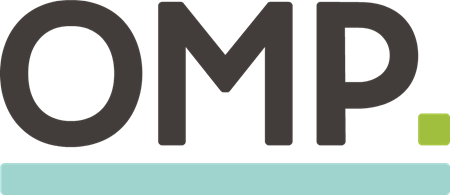
Ask our experts
Do you need paper, plastics & packaging supply chain expert advice? Check our FAQ or submit your own question. We're happy to help you.

Pieter Geerinck
Senior Industry Manager, Paper, Plastics and Packaging at OMP BE
Biography
Pieter, a Senior Industry Manager, has been focused on the packaging industry since he started at OMP 10 years ago. He is a member of the functional core development team for Unison Planning™ for Paper, Plastics, and Packaging.

Elien Peleman
Project Manager at OMP BE
Biography
Elien is a Project Manager with a special focus on the packaging industry. She collaborates fully with her customers to find a good, user-friendly solution to help her customers to achieve their goals.
-
We keep having problems providing reliable due dates to our customers. How would your planning tools improve that?
Unison Planning includes a fully automated Order Promiser which replies to order requests in real time. It contains true Capable-to-Promise (CTP) functionality, taking into account the availability of machine capacity, raw materials, tooling and other resources. In addition, the planning tool takes into account the type of demand, such as MTO versus MTS, and short-term orders versus week orders. The planning system also reacts immediately to unforeseen events, making sure you can keep your promises.
-
We have several production facilities and would want to optimize order allocation based on machine capabilities in the different factories and the distance to customers. How can Unison Planning™ help me make informed decisions?
Unison Planning can easily be set up in a multi-site environment. Products will be allowed to follow alternative production routes, taking into account equipment specifics in the different facilities. The overall production cost takes into account machine and material efficiencies, transport costs, and the availability of specific resources, etc. The total cost-based mathematical solver will propose the most cost-efficient plan to fit the constraints.
-
How can I set the right balance between make-to-order and make-to-stock business?
Unison Planning can handle make-to-order (MTO) and make-to-stock (MTS) products simultaneously. Capacities can be reserved for specific customers or product types and planners always see the impact of their planning decisions. The Unison Planning mathematical solvers carefully balance the risk of late MTO delivery and the risk of an MTS stockout, taking into account all the cost aspects and constraints. In addition, production and performance analysis functionality gives insight into repeat product demand patterns, allowing you to decide which products should be managed on an MTS basis.
-
Customer delivery times are very tight, forcing us to balance production efficiency against transport efficiency. How can Unison Planning™ help to optimize this?
Unison Planning’s integrated Transport Planning functionality is based on ful-cost optimization, taking into account trip and load optimization at the same time. Because it is integrated in the planning system, it provides constant and accurate visibility from both sides – the transport planner sees the actual order completion time, and the production scheduler and shop floor operators see the planned truck departure times. Any conflict arising from a delay or a change on one side will immediately be visible in the conflict handling framework.
-
Limited space available for storing work-in-process is a major production bottleneck, especially in situations of automated internal transport. How can Unison Planning™ help to optimize this?
In Unison Planning, available space for work-in-process (WIP) between the different operations can be defined as planning and scheduling constraints. Available space can be expressed by volume (m³), floor space occupation (m²), or length (m), depending on the production unit. WIP graphs are dynamically calculated from the production schedule and are visualized as a Gantt chart. You can then immediately evaluate how a change in the schedule impacts the WIP volumes. Adequate WIP levels in front of each conversion machine are maintained by synchronizing the corrugator and conversion schedules. Interactive WIP graphs clearly visualize future WIP levels, allowing you to take action in the event of a predicted material run out or WIP overload.
-
In our group, we have some paper production facilities and some box plants. As a result, the paper factories have a constant struggle to make the right paper widths. How can Unison Planning™ help here?
Unison Planning includes a Paper Supply Chain Network Designer to help align paper and packaging production. This solution checks the actual and expected demand emerging from the box plants, including which widths are needed when and where. The built-in mathematical solver verifies stock levels, calculates production and transport costs, and optimizes make-or-buy decisions to create a cost-optimal paper production plan. And it takes care of slitting optimization on the paper machines at the same time.
-
My sales team’s forecasts are often inaccurate and unreliable. How can Unison Planning™ help me to challenge their plans?
Our Demand Management functionality can certainly help you to improve forecasting in your make-to-stock business. The solution uses a statistical engine, including specific models suited to the B2B context, to generate reliable forecasts. It includes extended functionality to manage and cleanse historic demand data.
-
How does Unison Planning™ optimize deckling?
Mathematical optimization has been at the core of Unison Planning since its foundation. Our deckling optimizers for the various industries are based on a relevant-cost model, taking into account all the elements generating costs, including capacity utilization, material setup, trim waste, work-in-process, and handling costs etc. However, it’s not a black box. You can configure the solver to suit your specific situation and you can also enforce certain decisions manually. You control how the mathematics turns your strategy into reality.
-
How does Unison Planning™ support decision-making during night shifts or on the weekend, when no planners are available?
Unison Planning allows planning, deckling and scheduling to be run in fully automatic mode, relying on the built-in decision support functionality that normally takes all routine work out of the planner’s hands. A diagnostics framework constantly verifies whether action is needed, for example in the event of a machine running out of work, a rush order coming in, or a machine stopping. In automatic mode, intelligent algorithms will then decide what action to take and how to adjust the plan, taking into account the desired KPIs. In general, this will generate far better results than improvised ad-hoc decision-making.
-
As we produce a lot of different products, we constantly have to run new references with different base data such as production rates and waste percentages. This negatively impacts schedule reliability. How can Unison Planning™ help here?
The OMP Shop Floor solutions for the packaging industry constantly feed a history database, registering production rates, setup times and waste percentages for each product. AI techniques allow Unison Planning to overrule default production rates or waste percentages based on analysis of similar products, making the schedule more reliable and robust. In addition, the schedule is adapted automatically whenever the system notices that a given order on a machine is running slower or faster than expected.
-
We produce complex products such as displays containing a lot of different components. How can we ensure that all components are produced at the right time and in the right quantities?
In Unison Planning, assembly structures can be defined, involving components that follow completely different routings or that are purchased externally. The planning system will ensure that production orders are launched at the right moment to produce the right quantity of each component at exactly the right time, while the scheduling system will ensure synchronization between the different production orders.
-
We’re planning to invest in new corrugator equipment, but we’re not sure if we should buy a 2.8 meter-wide machine and whether it should have 2 or 3 cutoff knives. How can OMP help?
OMP has a solution called OMP Corrugator Lab, allowing past order packages to be optimized against equipment under consideration for investment. The tool behaves like a real planner, displaying the trim, production costs, and paper widths used for your order mix. The tool can also be used to simulate other scenarios, for example to find the best mix of paper widths to run on your machines. You can either purchase and install the Corrugator Lab to do these simulations yourself, or OMP can do them for you as a consulting project.
-
How can Unison Planning™ ensure that required quality checks are done and that the results are stored for analysis and certification purposes?
The OMP Quality Tracing solution allows quality checks to be traced. You define the required quality checks per machine and the order or product type. This will prompt the operator to take a sample and register the quality test result in Unison Planning. The quality tracing details are stored in the history database for reporting, later analysis and detailed order tracing.
-
How can Unison Planning™ help improve collaboration between work preparation and production, making sure that tooling, inks and other materials go in a timely manner to the machines involved?
Unison Planning supports paperless communication between resource preparation and production. The resources needed (stereos, dies, inks or special materials) for the current schedule are displayed for the work preparation department in a separate Unison Planning window. Once prepared, the resource is marked as ready. Machine operators always clearly see the actual status of each resource.
-
How does Unison Planning™ ensure that machine operators run orders according to the actual production schedule and in line with the required product specifications?
Unison Planning gives machine operators online access to accurate schedule and order information to ensure production according to specifications. The machine queue and all order details are clearly displayed, showing customer data, product data, order progress, routing, inks, setup, pallets, and earlier complaints, and more. The queue also immediately reflects every change in the schedule or order progress. Simple click actions allow detailed information on customer, product, inks, required resources, printing info and production feedback from previous machines to be visualized.
-
How can a scheduler track in Unison Planning™ whether production has followed the machine schedule or has encountered delays, for example during the night shift?
Unison Planning can be configured to prevent operators from deviating from the machine schedule, unless the sequence is overruled by a supervisor indicating the reason. Schedulers will be alerted when a sequence is overruled. Before leaving for the day for example, schedulers can set aside a “reference schedule”, which is a schedule snapshot for later comparison with the actual production, allowing deviations to be easily detected.
-
How do I integrate Unison Planning™ into my production system landscape to get the best from the available functionality?
Unison Planning can be fully integrated into your IT environment by means of standard integrations. This includes integration with order-to-cash systems, and a wide variety of shop floor devices such as machine controllers, conveyor systems, ink kitchens and high-bay storages. If the production machines lack an advanced controller allowing us to integrate with it, the Unison Planning CMI kit can be used as a bridge between any machine and the OMP tools. This allows for automatic production feedback and online updates to the planning modules.
Not found what you were looking for?
Ask our experts!
By clicking Submit, you give OM Partners nv permission to store your personal contact details for further communication. Your contact details will be treated with care and in accordance with our privacy statement.
I give consent *